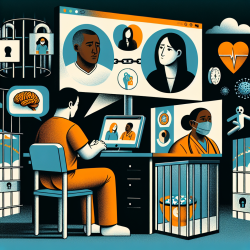Breaking Down Barriers: Improving Access to Eating Disorder Care
The journey to accessing care for eating disorders is fraught with obstacles, particularly for individuals from ethnically diverse backgrounds. A recent study titled A qualitative study of perceived social barriers to care for eating disorders: Perspectives from ethnically diverse health care consumers sheds light on these challenges and offers insights that can help practitioners improve their approach to treating eating disorders.
Understanding Social Barriers
The study highlights several key social barriers that impede access to care for eating disorders. These include:
- Stigma and Shame: Many individuals feel ashamed or stigmatized by their eating disorder, which can deter them from seeking help. The fear of being labeled or judged can be overwhelming.
- Social Stereotypes: Misconceptions about who is affected by eating disorders can lead to underdiagnosis or misdiagnosis, especially among ethnic minorities. For instance, the stereotype that only young white women suffer from these conditions can result in other groups being overlooked.
- Cultural Norms: Cultural beliefs and practices can influence how symptoms are perceived and whether individuals feel comfortable seeking professional help.
The Role of Practitioners
Practitioners play a crucial role in overcoming these barriers. Here are some strategies they can adopt:
- Cultural Competence: By understanding the cultural backgrounds of their patients, practitioners can tailor their approach to be more sensitive and effective. This includes being aware of cultural norms and stereotypes that may affect treatment-seeking behavior.
- Sensitivity Training: Training programs that focus on reducing stigma and improving sensitivity towards diverse populations can help practitioners provide more inclusive care.
- Mental Health Literacy: Educating patients about eating disorders and available treatments can empower them to seek help. This involves dispelling myths and providing clear information about the disorder's nature and treatment options.
The Importance of Further Research
The study underscores the need for further research into social barriers affecting access to eating disorder care. By expanding our understanding of these barriers, we can develop more targeted interventions that address the specific needs of diverse populations.










